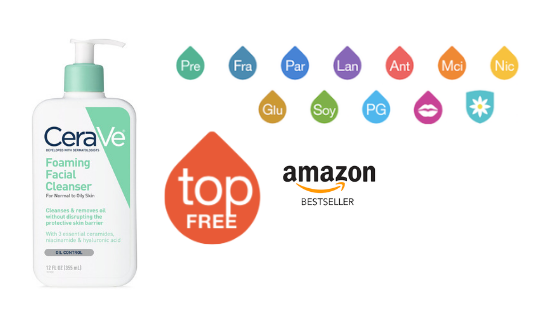“The heartbreak of psoriasis” was the slogan of a drug commercial many years ago. I think the advertising folks had something there. Psoriasis is more than just a skin problem. This autoimmune disease affects about two to three percent of the population in Western countries, and has serious effects on quality of life. A recent continuing medical education article reports that patients with psoriasis have emotional and physical impairment comparable to that suffered by patients with heart disease, cancer, or diabetes. Psoriasis patients have higher rates of depressive disorders, alcohol consumption, and suicide than the general population. In addition, psoriasis is associated with increased rates of cardiovascular disease and metabolic syndrome, which is characterized by high blood pressure, diabetes, obesity, and poor lipid metabolism. All chronic skin diseases are associated with social stigmatization.
Psoriasis often begins early in life. According to Reference 1, 10 percent of patients experience their first symptoms before age 10; 20 percent before age 15, and 60 percent before age 40. Thus it is common to treat patients for decades.
The Dermatology Life Quality Index (DLQI) is available online (see references), and useful for evaluating the severity of skin disease. Changes in the DLQI score show how well treatment is working, and indicate whether a more aggressive treatment program is appropriate. An alternate index is the Psoriasis Area and Severity Index (PASI). Since all available treatments have serious risks as well as benefits, it is important to make a quantitative evaluation of how well the symptoms are being controlled.
Approximately 20 percent of psoriasis patients also have psoriatic arthritis. The course of this condition is often more severe than previously assumed. Usually the arthritis symptoms develop many years after the skin symptoms, but they can also begin first.
Treatments include local therapy (skin creams), phototherapy, and systemic drugs. The systemic drugs include:
1. Acitretin (Soriatane), oral. Side effects include liver and pancreas damage, headache, nausea, vomiting, and vision problems.
2. Cyclosporine, oral. This is a powerful immunosuppressive drug used for organ transplants. The manufacturer recommends that only physicians experienced in immunosuppression should prescribe it.
3. Methotrexate, subcutaneous. Side effects include toxicity to the liver, kidneys, and bone marrow.
4. Etanercept (Enbrel), subcutaneous.
5. Infliximab (Remicade), intravenous.
6. Adalimumab (Humira), subcutaneous.
The last three are tumor necrosis factor (TNF) inhibitors. They have serious side effects described in the references.
For psoriasis patients, both the disease and its treatments require careful monitoring to obtain the best possible quality of life.
Reference:
Mrowietz U et al, “Psoriasis – new insights into pathogenesis and treatment”, Dtsch Arztebl Int. 2009 Jan; 106(1-2): 11-18.
DLQI online:
http://www.dermatology.org.uk/downloads/dlqiquest.pdf
Soriatane:
http://www.soriatane.com/patient/part.aspx
Sandimmune (cyclosporine):
http://www.rxlist.com/sandimmune-drug.htm
Methotrexate:
http://www.medicinenet.com/methotrexate/article.htm
Tumor Necrosis Factor Inhibitors:
https://www.empowher.com/news/herarticle/2009/12/17/tnf-blockers-miracle-drugs-or-minefields
Linda Fugate is a scientist and writer in Austin, Texas. She has a Ph.D. in Physics and an M.S. in Macromolecular Science and Engineering. Her background includes academic and industrial research in materials science. She currently writes song lyrics and health articles.






Add a Comment2 Comments
I am 55 yrs. old and have had psoriasis for 19 years. I hate this disease. I am afraid of the drugs that treat it, so I just use an ointment. I have it on both feet and it is so embarrasing. I also have it under 2 of my fingernails... the same finger on both hands. Does anyone know of any home remedies or vitamins to help this?
June 29, 2011 - 2:30amThis Comment
Hi Dr. Fugate:
I read your article with interest. As I read and reflected on the contents of your posted article and the reference to Dr. Mrowietz article, critically important aspects in the treatment of psoriasis were conspicuously absent, the role of diet , food allergies (ie. gluten, dairy, egg, tree nuts, soy, fructose, etc. sensitivities), and bowel dysfunction and dysbiosis in the pathogenesis of psoriasis. Dealing with this triad is critical.
Being that the preponderance of our immune system is centered in our gut, with good reason, this should also be the focus and center of the treatment of psoriasis and other skin disorders including Eczema or Atopic Dermatitis, and many other chronic diseases as a reflection of what may be occurring in the gut. There is a good reason why psoriasis is not present in children whereas Atopic Dermatitis is. It has to do with the sensitization that occurs over time culminating in a cutaneous manifestation of an inflammatory disorder centered elsewhere. All psoriasis is not the same.
Much attention and resources are spent on finding the cure through the use of newer expensive biologic agents. Although the biologics can be effective very quickly, by their very nature they will ultimately fail and be the cause of serious side-effects. That which causes the psoriasis to flare is neither addressed or identified. Our immune system is amazing. It will create an antibody to the antibody that is being used as basis for treatment. And, although we know much about the genetics of psoriasis, we also know that any one gene is also affected by and functions in concert with others.
Perhaps, if you have access and are able to consult with some of the dermatology experts on the EmpowHER panel, you can expand on a more integrative approach to the treatment of psoriasis and other skin conditions to inform your readers. Please continue your good work.
Best regards,
May 13, 2010 - 1:09pmCésar A. Maúrtua M.D.
This Comment